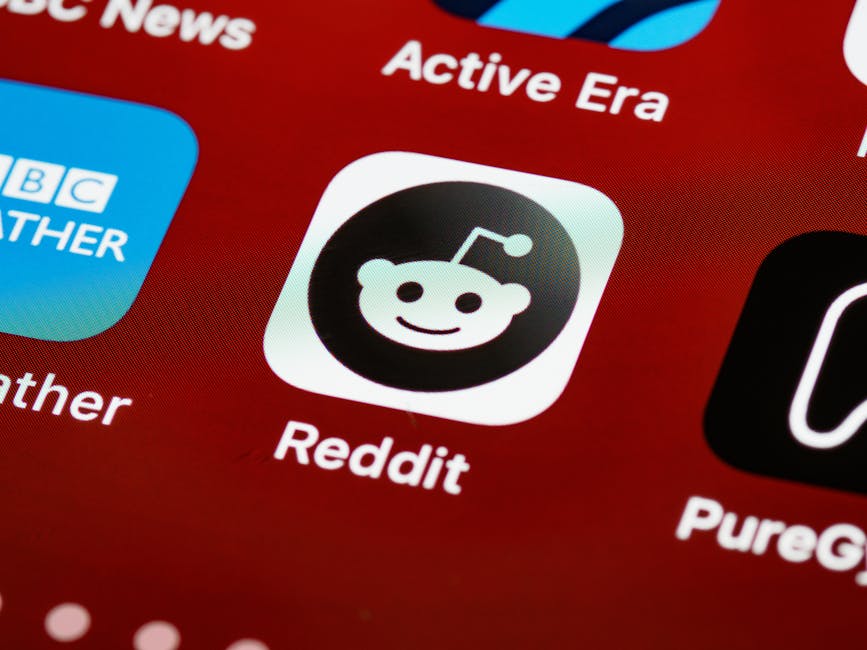So, you’re trying to get your business noticed online here in 2025, right? It’s a big, noisy internet out there, and just hoping people stumble across you isn’t, well, it’s not much of a plan. Normally, when folks think about getting their stuff seen by more eyes, they usually hear about two main routes: SEO, which is all about getting your website to show up high in search results naturally, and PPC, which involves paying to get your ads right up there. For a long time, it felt like people treated these two things like separate planets, orbiting the same sun but never really getting too close. But that idea, it’s sort of outdated now, you know? It’s pretty clear for most people that getting them to work together, side by side, that’s where the real magic happens. We’re talking about making your online presence strong, really strong, by combining these two powerhouses. It’s not just about one or the other, it’s often about both, doing their own thing but also helping each other out. This whole idea of keeping them apart, it doesn’t quite make a lot of sense if you really think about it for a minute or two. Getting them talking, that’s the way to go forward these days.
The Two Big Ways People Find You Online, and Why Having Both is Just Smart
So, let’s talk about SEO first. What is it, really? Think of it like this: when someone types something into Google, like “best coffee shop near me” or “how to fix a leaky faucet,” Google tries to show them the most relevant answers from websites all over the world. SEO is all the work you do to make your website one of those top answers, without paying Google directly for that spot. It’s about having good content, having a fast website, getting other respectable websites to link back to yours, and making sure Google understands what your pages are all about. It’s a bit of a marathon, not a sprint. You put in the time and effort, and over months, or even longer, your website starts to climb the rankings. People see your name there, in those organic listings, and typically, they might see it as more trustworthy because you “earned” that spot, not paid for it. It builds up over time and keeps working for you, often for quite a while, once you’re up there.
Then there’s PPC, or Paid Per Click. This is sort of the opposite in terms of how fast it works. You literally pay Google (or other search engines or social media sites) to show your ad to people who are searching for certain things. You pick keywords, you write some ad copy, you set a budget, and boom—your ad can be at the very top of the search results almost instantly. It’s a way to get visibility right away, even if your website is brand new or not ranking well organically yet. It’s very much a pay-to-play situation. As soon as your money runs out, or your campaign stops, your ads disappear. But the benefit is, you can be super precise with who sees your ad, when they see it, and for what searches. You can test out different messages and see what makes people click.
Now, why have both? Well, think about a store trying to attract customers. One way is to be in a really good location, easy to find, with a nice window display – that’s like SEO. People naturally walk by and come in. The other way is to run ads in the local paper or send out flyers – that’s like PPC. You’re actively pushing your message out there. A smart store, they do both, don’t they? They make sure they’re in a good spot and they advertise. This strategy, it simply covers more ground. If you only do SEO, you might miss out on quick wins or reaching people who are ready to buy right now. If you only do PPC, you’re missing out on the free traffic and the long-term trust that organic rankings can bring. So, putting them together, it gives you a much fuller, stronger presence, normally. It’s just a sensible way to approach things, most people would say.
How Your Paid Ad Campaigns Can Help Out Your Organic Search Standing, and Vice-Versa
It’s often considered to be that the information you gather from your paid campaigns, like PPC, can really give a lift to your organic efforts. For example, when you run a PPC campaign, you’re paying to show up for certain keywords. You get to see really fast which of those keywords actually lead to clicks and, more importantly, which ones lead to people doing what you want them to do on your site – maybe signing up for something, or buying a product, whatever. That sort of data, it’s not really something you get as quickly with SEO alone.
If you find that a particular keyword, let’s say “eco-friendly dog toys for puppies,” is a money-maker for your PPC campaign, people click that ad and buy stuff, then it’s a good signal. This means you should probably put more effort into creating fantastic content on your website that targets that exact phrase and all the related phrases, so you can rank organically too. It sort of pinpoints where to put your SEO muscle. You’ve tested it with money, now go earn it for free. Also, paid ads can test headlines and descriptions for your organic search listings (the “meta descriptions” and “title tags”). If one ad copy gets more clicks than another, you might think about using that winning text for your organic title and description, since it’s already shown to grab attention.
And the reverse is true as well. Your good organic rankings can make your paid ads work better. Imagine you’re already showing up as number one organically for “best vegan chocolate cake recipe.” That’s great. Now, if you run a PPC ad for “buy vegan chocolate cake online,” people who see your name twice on the same search results page – once in the ads, once in the organic listings – they might feel you’re a much bigger deal, a more trustworthy source. It’s a bit like seeing the same brand in multiple places; it makes them seem more established and legitimate. This dual appearance can raise something called “brand recall” and can even make people more likely to click your paid ad, because they recognize you from the organic listing. Sometimes, just having an organic listing that’s doing well can bring down the cost of your paid clicks too, because Google sees your site as more relevant and important for those topics. It’s a bit like a reputation bonus, for sure.
Keeping Your Online Message Consistent So Everyone Knows Who You Are
When you’re doing both SEO and PPC, it becomes quite important, a really big deal actually, to make sure everything you put out there is saying the same thing about your business. People see a lot of stuff online every single day, and if your paid ads are saying one thing, and then they click through to your website, or they see your organic listing, and it’s talking about something a bit different, it can confuse them. That’s normally not what you want to happen. You want a clear story.
So, for instance, if your PPC ad talks about how you offer the “fastest delivery for custom-made t-shirts,” then your website’s landing page, the page people go to after clicking the ad, really needs to hit that point home. It should probably have bold text right there about super-speedy shipping, maybe even a countdown timer or something. And when people see your organic listing, that one that you didn’t pay for, it should also somehow talk about your speed or your custom t-shirts. It’s considered to be about presenting a united front.
When your brand shows up in different spots on the search results page – maybe an ad at the top, then your organic listing a bit further down, and perhaps even a local business listing – all of it should look and sound like it’s coming from the same place. This helps build trust with potential customers. They think, “Oh, this company is everywhere, and they’re consistent. They must be serious.” It gives you a much bigger presence in the mind of the person searching. It’s about being omnipresent, without being annoying, if you can pull that off. This sort of consistency, it can greatly affect how people feel about your brand. People like things that feel familiar and predictable, normally, especially when they’re trying to make a buying decision. If they see your logo and message consistently, they’re more likely to remember you and come back later.
Things That Can Go Wrong If You Don’t Make SEO and PPC Work Together Properly
It’s easy to make mistakes, especially when you’re dealing with more than one thing at a time, like SEO and PPC. One of the more common goofs people make is spending money on PPC ads for keywords where their website already ranks number one or two organically. Think about it: if you’re already showing up at the very top for free, why pay for that same spot with an ad? It’s like paying for a ticket when you already have a backstage pass. Normally, it makes more sense to use your PPC money for keywords where you’re not ranking well organically, or for new products, or maybe for very specific campaigns where you need instant visibility. It’s a bit of a waste of resources if you just duplicate efforts without thinking it through.
Another thing that often happens is a lack of communication. Sometimes, the team handling SEO is off doing their thing, making content, fixing technical stuff, and then the PPC team is in their own world, setting up ads and bids. But if these two groups aren’t talking to each other, sharing what they’ve learned, then a lot of chances for improvement are just missed. For instance, the PPC folks might find a bunch of keywords that convert really well, but they don’t tell the SEO team. So the SEO team never gets around to making content that could rank organically for those important keywords. Or maybe the SEO team has found a particular type of content that gets a ton of engagement, but the PPC team doesn’t use that information to craft better ad copy or landing pages. This siloed way of working, it can definitely make things run less smoothly. It just happens quite a lot, actually.
Also, some people mistakenly think that PPC can completely replace SEO, or vice versa. They’ll say, “Oh, we’ll just pay for ads, it’s faster,” and then totally neglect their organic presence. But remember, as soon as you stop paying for PPC, your visibility disappears. You’re left with nothing. And if you only do SEO, you might miss out on those immediate sales opportunities or the ability to quickly test new market ideas. It’s really about having a balanced approach. One doesn’t just substitute for the other; they sort of complement each other, if that makes sense. Neglecting either one completely can really leave big holes in your online strategy, something no one really wants in this sort of busy online world.
What 2025 Means for Getting Found Online: The Future is Still About Both
As we move further into 2025 and beyond, the online world, it keeps changing, pretty fast too. We’ve got AI popping up in all sorts of places, helping with writing content or even trying to predict what people want. Search engines are getting smarter, understanding natural language better, and even showing results in different ways, like little snippets or through voice answers. But even with all these new things coming along, the core idea of making SEO and PPC work together? That’s not going away. In fact, it’s considered to be getting even more important.
New kinds of search results, like those fancy AI overviews you might see, they still rely on good underlying content – that’s SEO. And if you want to stand out in those new places, getting an ad into that space, or making sure your content is easily pulled into an AI summary, it might need a combined effort. Voice search is another thing, you know? People are talking to their devices more. Optimizing for voice search often means going after slightly different, more conversational keywords, and both SEO (making sure your content answers questions directly) and PPC (targeting those question-based ads) can play a part.
The competition online isn’t getting any smaller, usually. There are more businesses, more websites, and more people trying to get noticed. So, being able to hit people from multiple angles – with a good organic ranking and a well-placed ad – means you’re just more likely to catch their attention. It’s about maximizing your chances. The businesses that are really good at this, the ones that see their organic team and their paid team as one big unit, they’re the ones who are normally going to do better. They can use all the tools available to them, adapting quickly to new changes, and making sure their message is heard, no matter how search engines decide to show things in the future. It’s just about being smart and covering your bases, isn’t it?
FAQ: How SEO and PPC Work Together in Real Life
Q1: Can using PPC ads somehow hurt my organic SEO rankings?
Not really, no. It’s often thought that they run on separate tracks, mostly. Running PPC ads won’t make your website drop in organic rankings. If anything, as we talked about, the information you get from PPC can even help you improve your SEO, like finding good keywords that people actually click on. They’re like different lanes on the same highway.
Q2: Should I pause my PPC ads if my website is already ranking number one organically for a keyword?
Normally, yes, you should probably think about it. If you’re already getting a lot of free traffic from being number one, paying for an ad for that exact same keyword might not be the best use of your money. You could shift that budget to other keywords where you need to get seen more, or use it to test new things. There are some situations where you might still want an ad there for brand protection or to take up more screen space, but usually, it’s a good place to save some cash.
Q3: How quickly can I expect to see results when I combine SEO and PPC?
Well, you’ll usually see results from PPC ads pretty fast, often within days or weeks, depending on your budget and how well your ads are set up. SEO, on the other hand, takes a good bit longer. You’re typically looking at months, sometimes even six months to a year or more, to see serious organic ranking improvements. But the idea is that while PPC gets you quick wins, SEO builds something more lasting. So, combined, you get both short-term gains and long-term stability.
Q4: Is it more expensive to do both SEO and PPC at the same time?
It probably costs more upfront to do both than just one, because you’re investing in two different kinds of efforts. However, if you do it well, combining them can actually lead to better overall results and a better return for your money. You might spend less on PPC in the long run if your SEO starts bringing in free traffic, and your PPC data can make your SEO efforts more targeted and efficient. So, while the initial spend might be higher, the overall effect on your business visibility and sales might make it a more cost-effective approach when everything is taken into account.




